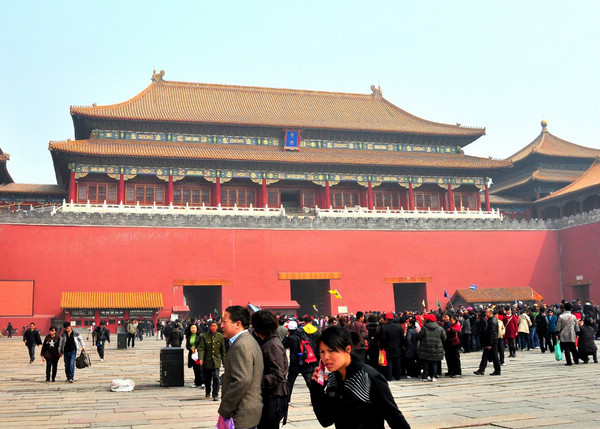

 |
Beijing, Tianjin and Hebei province will jointly develop landscape tourism in their boundary areas, according to a cooperation agreement signed last week.
Landscape tourism refers to places people can go to enjoy natural scenery.
Five pairs of demonstration areas will be set up along the borders, for example, one connecting Shidu Scenic Spot in Beijing's Fangshan district and Yesanpo Scenic Area in Baoding. Four other areas in Beijing, Tianjin, Shijiazhuang, Baoding, Chengde and Zhangjiakou are also included.
"Each of the scenic spots has been developed before and is currently operational, but with no integrated planning," said Li Zhuangyu, an expert in agricultural tourism at Agriculture University of Hebei.
Even though they belong to different regions and are under different management, the landscapes are closely related, she said, adding that separate development has wasted resources.
"Hebei boasts large areas of land, while Beijing and Tianjin have qualified scientists and technicians. Sharing these resources can bring mutual benefits," Li said.
Most of all, sharing can help cities in Hebei province, which have lagged behind in the development of large-scale landscapes compared with Beijing and Tianjin, Li said.
Li said that Hebei's main disadvantage is that many landscapes are located in cities like Chengde and Zhangjiakou, which are too far from the provincial government in Shijiazhuang to be managed effectively.
"As a part of the integrated development of Beijing, Tianjin and Hebei, the unified planning and management of these landscapes can help further promote agricultural tourism around them," said Zhang Yu, an official at the Hebei Provincial Department of Agriculture.
Agricultural tourism often involves sampling crops - such as grapes or berries - as well as visits to fields and processing facilities.
Governments have different policies and standards for tourism, and they need to negotiate on other areas including transportation connecting the scenic spots and the final economic payoff, Zhang said.
As a big agricultural province, Hebei emphasizes its output, but it hasn't paid enough attention to the development of agricultural tourism, an area in which Beijing and Tianjin are experienced, Zhang said.
 Models change clothes on street in Hangzhou
Models change clothes on street in Hangzhou Charming iron ladies in China's upcoming V-Day celebrations
Charming iron ladies in China's upcoming V-Day celebrations In pics: armaments displyed in massive military parade
In pics: armaments displyed in massive military parade Charming Chinese female soldiers
Charming Chinese female soldiers Volunteers required not taller than 5ft 5in
Volunteers required not taller than 5ft 5in  Czech pole dancing master teaches in Xi'an
Czech pole dancing master teaches in Xi'an Shocked! PLA smokescreen vehicle drill
Shocked! PLA smokescreen vehicle drill Foreigners experience tranditional Chinese wedding
Foreigners experience tranditional Chinese wedding Blind date with bikini girls in Nanjing
Blind date with bikini girls in Nanjing Aging anticipation
Aging anticipation Industrial output up 6.1% in August
Industrial output up 6.1% in August US insecurity shows in false spying claims
US insecurity shows in false spying claims Iowa residents recall memories of hosting Chinese president
Iowa residents recall memories of hosting Chinese presidentDay|Week